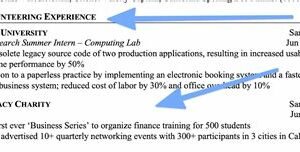Table of Contents
Volunteer work provides invaluable opportunities to learn and grow. Engaging in volunteer activities allows individuals to develop new skills, gain diverse experiences, and broaden their perspectives. It teaches important values such as empathy, compassion, and teamwork. By volunteering, you can gain a better understanding of social issues and make a positive impact on the community. Discover the transformative power of volunteer work and embark on a journey of personal and professional development.
Volunteer work is not just about lending a helping hand; it is an opportunity to gain valuable experiences and acquire essential life skills. Whether it’s spending time at a local food bank, tutoring underprivileged children, or assisting in community clean-up projects, the lessons learned from volunteering are immeasurable. By dedicating your time and energy to a cause greater than yourself, you can develop a strong sense of empathy, compassion, and understanding towards others. Additionally, volunteer work allows individuals to expand their network, enhance their communication skills, and gain a deeper understanding of societal issues. Through the lens of volunteering, one can truly appreciate the power of teamwork and collaboration in making a meaningful impact on the world.
The Value of Volunteer Work
Volunteering is a noble act that allows individuals to give back to society and make a positive impact on the lives of others. While many people engage in volunteer work to help those in need, there is much more to gain from this experience than just a sense of altruism. Volunteering offers numerous opportunities for personal growth and development, which can have a lasting impact on both your personal and professional life.
Developing New Skills
One of the most valuable things you can learn from volunteer work is the opportunity to develop new skills. Whether you are assisting in community projects, working in healthcare facilities, or participating in environmental initiatives, volunteering exposes you to various tasks and responsibilities. These experiences can help you acquire practical skills such as communication, teamwork, problem-solving, and leadership, which are highly sought after in the professional world.
Expanding Your Network
Volunteering also provides an excellent platform to expand your network and build meaningful connections. By working alongside other volunteers, professionals, and organizations, you have the opportunity to meet people from diverse backgrounds and industries. Building relationships with these individuals can open doors to new opportunities, mentorship, and potential career advancements.
Enhancing Empathy
Engaging in volunteer work can significantly enhance your empathy and compassion towards others. By interacting with individuals facing various challenges, you gain a deeper understanding of their struggles and develop a heightened sense of empathy. This newfound empathy can positively impact your personal relationships, as well as your ability to understand and connect with colleagues, clients, and customers.
Gaining Perspective
Volunteering exposes you to different perspectives and experiences that you may not encounter in your day-to-day life. By immersing yourself in diverse communities and cultures, you gain a broader understanding of the world and its complexities. This expanded perspective can help you become more open-minded, adaptable, and appreciative of the diversity that exists within society.
Building Confidence
Volunteer work often involves taking on new challenges and stepping out of your comfort zone. By pushing yourself to try new things and overcome obstacles, you can build self-confidence. As you successfully navigate unfamiliar situations and contribute meaningfully to your volunteering efforts, you will develop a sense of accomplishment and belief in your abilities.
Improving Communication
Effective communication is a vital skill in both personal and professional settings. Volunteer work provides ample opportunities to hone your communication skills by interacting with a diverse range of individuals. Whether it’s coordinating with fellow volunteers, collaborating with team members, or engaging with those you are assisting, volunteering helps you become a more effective communicator, both verbally and non-verbally.
Developing Time Management
Volunteering often requires juggling multiple responsibilities and tasks within limited time frames. This experience can help you develop excellent time management skills as you learn to prioritize and efficiently allocate your time. The ability to effectively manage your time is invaluable in any professional setting, as it allows you to meet deadlines, be productive, and maintain a healthy work-life balance.
Learning Stress Management
Volunteer work can be demanding and challenging at times, exposing you to stressful situations. However, these experiences also provide an opportunity to learn how to manage stress effectively. By developing strategies to cope with pressure, you can apply these skills to your professional life, enabling you to handle work-related stressors more efficiently.
Fostering Gratitude
Engaging in volunteer work fosters a deep sense of gratitude for the privileges and opportunities you have in your own life. Witnessing the challenges faced by others and being able to contribute to their well-being cultivates a greater appreciation for what you have. This gratitude can enhance your overall satisfaction and fulfillment in life, impacting not only your personal well-being but also your professional outlook.
Conclusion
Volunteer work offers far more than just the opportunity to give back. It provides valuable lessons and experiences that can shape your personal and professional growth. From developing new skills to expanding your network and fostering gratitude, volunteering offers a multitude of benefits that can have a lasting impact on your life. So, consider giving your time and skills to a cause you believe in – not only will you make a difference, but you’ll also gain invaluable knowledge and experiences along the way.
Developing valuable skills and knowledge
Volunteer work provides an excellent opportunity to develop a range of valuable skills and knowledge that can benefit you both personally and professionally. Through volunteering, you can enhance your communication skills, teamwork abilities, and problem-solving capabilities. Moreover, you can acquire specialized knowledge related to the field in which you are volunteering, which can open new career doors or bring depth to your existing expertise.
Gaining real-world experience
Engaging in volunteer work allows you to gain hands-on experience in a real-world setting, providing you with practical knowledge that cannot be learned from textbooks alone. Whether you are assisting in a healthcare facility, local charity, or community development project, the experience gained through volunteering can help you understand the challenges and rewards of working in your chosen field and prepare you for future employment opportunities.
Networking and making connections
Volunteer work offers an exceptional platform for networking and making connections with professionals from diverse backgrounds. By engaging in volunteer projects, you have the opportunity to collaborate with like-minded individuals, establish relationships with professionals in your field of interest, and potentially find mentors who can guide you in your career journey. Building a strong professional network through volunteer work can open doors to future job opportunities and provide invaluable support throughout your entire career.
Expanding cultural awareness and empathy
Volunteering often involves working with individuals from different backgrounds, communities, and cultures. By immersing yourself in such diverse environments, you can develop a greater understanding and appreciation for cultural differences, broadening your perspectives and enhancing your ability to relate to others. The exposure gained through volunteer work can foster empathy and compassion, making you more adaptable and culturally competent, crucial qualities in today’s globalized world.
Enhancing personal growth and self-confidence
Volunteer work not only benefits others but also contributes to your personal growth and self-confidence. Through volunteering, you can challenge yourself, step out of your comfort zone, and develop a sense of purpose and fulfillment. As you witness the positive impact of your efforts on the lives of others, you become more aware of your own capabilities and strengths, boosting your self-confidence and motivating you to continue making a difference.
Developing leadership and management skills
Volunteer work often presents opportunities to take on leadership and management positions. By assuming responsibilities in planning and coordinating volunteer projects, you can enhance your leadership skills, learn effective management techniques, and gain valuable experience in overseeing a team or a project. These skills are transferable and highly sought-after by employers in various industries.
Building a well-rounded resume
Engaging in volunteer work showcases your commitment to community involvement and demonstrates your willingness to go above and beyond for a cause. Including your volunteer experiences on your resume can help you stand out to employers and highlight qualities such as teamwork, adaptability, and empathy, which are highly valued in the professional world. Volunteering can be the differentiating factor that sets you apart from other candidates.
Making a positive impact on society
Ultimately, one of the most significant benefits of volunteer work is the opportunity to make a meaningful, positive impact on society. By dedicating your time, skills, and efforts to the betterment of others, you contribute to creating a more compassionate and just world. The satisfaction and fulfillment derived from making a difference in the lives of others are immeasurable and provide a sense of purpose that transcends any career-related achievements.
As a professional, there are several valuable lessons that can be learned from engaging in volunteer work. The act of volunteering not only benefits the community and those in need but also provides numerous personal and professional growth opportunities. Here are some key points to consider:
1. Developing leadership skills: Volunteering often requires taking initiative, organizing tasks, and coordinating with others. This experience can help individuals enhance their leadership abilities and become more effective in managing teams and projects.
2. Building teamwork and collaboration: By working alongside other volunteers towards a common goal, professionals can learn the importance of collaboration and develop strong teamwork skills. These skills are essential in any professional setting where individuals must work together to achieve shared objectives.
3. Expanding your network: Volunteering exposes individuals to a diverse group of people who share similar values and interests. This provides an excellent opportunity to expand one’s professional network, meet potential mentors, and make meaningful connections that could benefit future career prospects.
4. Enhancing communication skills: Effective communication is crucial in both personal and professional settings. Through volunteer work, professionals can improve their ability to listen actively, express themselves clearly, and adapt their communication style to different audiences. These skills can greatly contribute to success in the workplace.
5. Gaining new perspectives: Engaging in volunteer work exposes individuals to different cultures, backgrounds, and life experiences. This exposure helps professionals develop empathy, understanding, and respect for others’ viewpoints. These qualities are highly valued in the workplace, as they promote diversity and inclusion.
6. Strengthening problem-solving abilities: Volunteer work often involves facing challenges and finding creative solutions to overcome them. By participating in such activities, professionals can enhance their problem-solving skills, develop resilience, and learn how to think critically when faced with obstacles.
7. Demonstrating social responsibility: Engaging in volunteer work shows a commitment to social causes and demonstrates a sense of social responsibility. This dedication to giving back to the community can positively influence professional reputation, as it showcases one’s values and character.
In conclusion, volunteer work offers a plethora of valuable lessons that can greatly benefit professionals. Through volunteering, individuals can develop leadership skills, foster teamwork and collaboration, expand their network, enhance communication abilities, gain new perspectives, strengthen problem-solving abilities, and demonstrate social responsibility. These lessons can contribute to personal growth and professional success, making volunteer work a worthwhile endeavor for any professional.
Thank you for visiting our blog and taking the time to read about the invaluable lessons one can learn from volunteer work. We hope that this article has provided you with valuable insights into the personal and professional growth that can be achieved through engaging in volunteer activities. Whether you are considering getting involved in volunteering or already have some experience, we believe that there is always something new to learn from giving back to the community.
First and foremost, volunteer work allows individuals to develop a strong sense of empathy and compassion towards others. By working closely with individuals who are less fortunate or facing various challenges, volunteers gain a deeper understanding of the struggles and difficulties that others go through. This experience fosters a sense of empathy, as volunteers learn to put themselves in the shoes of those they are helping. This newfound empathy not only strengthens relationships but also allows individuals to become more understanding and supportive in their personal and professional lives.
Moreover, volunteer work offers countless opportunities for skill development and personal growth. When engaging in volunteer activities, individuals often find themselves in situations that require them to think on their feet, problem-solve, and adapt to new environments. These experiences help to enhance critical thinking skills, as well as improve decision-making abilities. Additionally, volunteers often develop excellent communication and teamwork skills through collaborating with other volunteers and interacting with individuals from diverse backgrounds. Such skills are highly transferable and can be applied to various aspects of life, including the workplace.
In addition to empathy and skill development, volunteer work also provides individuals with a unique perspective and a broader understanding of the world. By immersing oneself in different communities and cultures, volunteers gain firsthand knowledge about various social issues and global challenges. This exposure helps to break down stereotypes and prejudices, fostering a greater appreciation for diversity and inclusion. Volunteers also develop a stronger sense of global citizenship, recognizing the interconnectedness of people and the importance of collective action in addressing societal problems.
In conclusion, volunteer work offers a wealth of learning opportunities that extend beyond the act of giving back. It teaches individuals essential life skills, cultivates empathy and compassion, and broadens perspectives. Whether you are looking to make a positive impact in your community or seeking personal growth, volunteering is undoubtedly a transformative experience. We encourage you to consider getting involved in volunteer work and explore the countless lessons that await you on this meaningful journey.
Thank you once again for visiting our blog, and we hope to see you soon!
.
People also ask about what you can learn from volunteer work:
- What skills can you learn from volunteering?
- Communication skills
- Teamwork
- Leadership
- Problem-solving
- Time management
- Adaptability
- Organizational skills
- Networking
- Emotional intelligence
- How can volunteering benefit your career?
- Enhancing your resume: Volunteering demonstrates your commitment, dedication, and diverse skill set, making you stand out to potential employers.
- Expanding your network: Volunteering allows you to meet people from different backgrounds and industries, providing valuable networking opportunities.
- Gaining experience: Volunteering can provide you with hands-on experience in areas related to your career interests, giving you an edge over other candidates.
- Developing transferable skills: The skills you learn through volunteer work can be applied to various professional roles, making you a more versatile employee.
- Boosting personal growth: Volunteering can enhance your self-confidence, empathy, and overall personal development, which can positively impact your career trajectory.
- What are the personal benefits of volunteering?
- Fulfillment: Volunteering allows you to make a positive difference in the lives of others, giving you a sense of purpose and fulfillment.
- Increased happiness: Helping others and contributing to your community has been linked to increased happiness and life satisfaction.
- Expanded perspective: Volunteering exposes you to different cultures, perspectives, and challenges, broadening your worldview and promoting empathy.
- Stress reduction: Engaging in volunteer work can help alleviate stress and improve mental well-being by providing a sense of accomplishment and social connection.
- Building relationships: Volunteering can help you establish meaningful connections with like-minded individuals, fostering new friendships and support networks.
Volunteering can help you develop a wide range of skills that are valuable in both personal and professional settings. Some of the skills you can learn from volunteer work include:
Volunteer work can have a positive impact on your career in various ways:
Besides the professional advantages, volunteering also offers numerous personal benefits:
Overall, volunteer work offers a multitude of skills, career benefits, and personal rewards that can positively impact both your professional and personal life.






